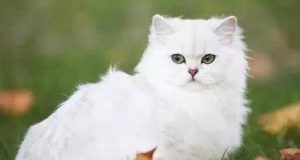Caring for a British Longhair cat involves understanding their dietary needs and avoiding certain foods that can be harmful to them. Below is a detailed guide on how to properly care for this beautiful breed and a list of forbidden foods.

How to Care for a British Longhair Cat: A Comprehensive Guide
Understanding the British Longhair Cat’s Diet
British Longhair cats, with their luxurious coats and calm demeanor, require a diet that supports their overall health and maintains their distinctive features. These cats are known for their dense long, fur and robust bodies, which means their nutritional needs are specific. A high-quality diet is essential to keep their coats healthy and their bodies strong.
Prohibited Foods for British Longhair Cats
Just like other cat breeds, British Longhair cats must avoid certain foods to ensure their health and well-being. Here is a list of foods that should never be fed to your British Longhair cat:
1. Animal Liver While some cats are fond of animal liver and may refuse other foods, it’s crucial to be aware of the health risks associated with excessive consumption. Animal liver contains high levels of vitamin A. Overconsumption of vitamin A can lead to serious health issues, including muscle stiffness, neck pain, skeletal and joint deformities, and liver disease. Therefore, it’s important to limit the intake of animal liver in your cat’s diet.
2. High-Fat Foods Feeding your cat a diet rich in high-fat fish or stale fatty meats can result in a deficiency of vitamin E. This deficiency can cause inflammation of the body fat, leading to severe and painful conditions. It’s essential to maintain a balance in your cat’s diet to prevent such health problems.
3. Raw Fish Certain raw fish contain enzymes that can destroy vitamin B1. A deficiency in vitamin B1 can lead to neurological disorders in cats, which can be fatal in severe cases. These enzymes are destroyed through cooking, so always ensure that fish is thoroughly cooked before feeding it to your cat.
4. Meat-Only Diets Although cats are obligate carnivores and require meat as the primary component of their diet, feeding them only meat can lead to nutritional imbalances. A diet consisting solely of meat can result in mineral and vitamin imbalances, potentially causing severe skeletal metabolic disorders. It’s important to provide a well-balanced diet that includes all necessary nutrients.
Dog Food Dog food is not a suitable substitute for cat food. The nutritional profiles of dog food and cat food are different, and dog food does not provide all the essential nutrients that cats require. Cats have higher nutritional needs compared to dogs, and feeding them dog food can lead to deficiencies and health issues.
Fish Liver Oil When supplementing your cat’s diet with additional vitamins and minerals, exercise caution. Excessive consumption of fish liver oil can lead to an overdose of vitamins A and D, which can result in bone diseases. It’s crucial to follow recommended guidelines when supplementing your cat’s diet.
If you lack experience in preparing meals for your cat, it is highly recommended to use commercial cat food that has been specially formulated by pet care experts. These products are designed to provide cats with balanced and complete nutrition, eliminating the need for additional supplements and reducing the risk of feeding errors.
Additional Forbidden Food: “Onions” A special note for cat owners who prepare DIY cat food: avoid adding onions to your cat’s meals. Onions can cause poisoning in cats, leading to hemolysis and potentially death. Always be vigilant about the ingredients in your cat’s food to ensure their safety.
By adhering to these guidelines and providing a proper diet, you can ensure the health and longevity of your British Longhair cat. Remember, a well-cared-for cat is a happy and healthy cat.
